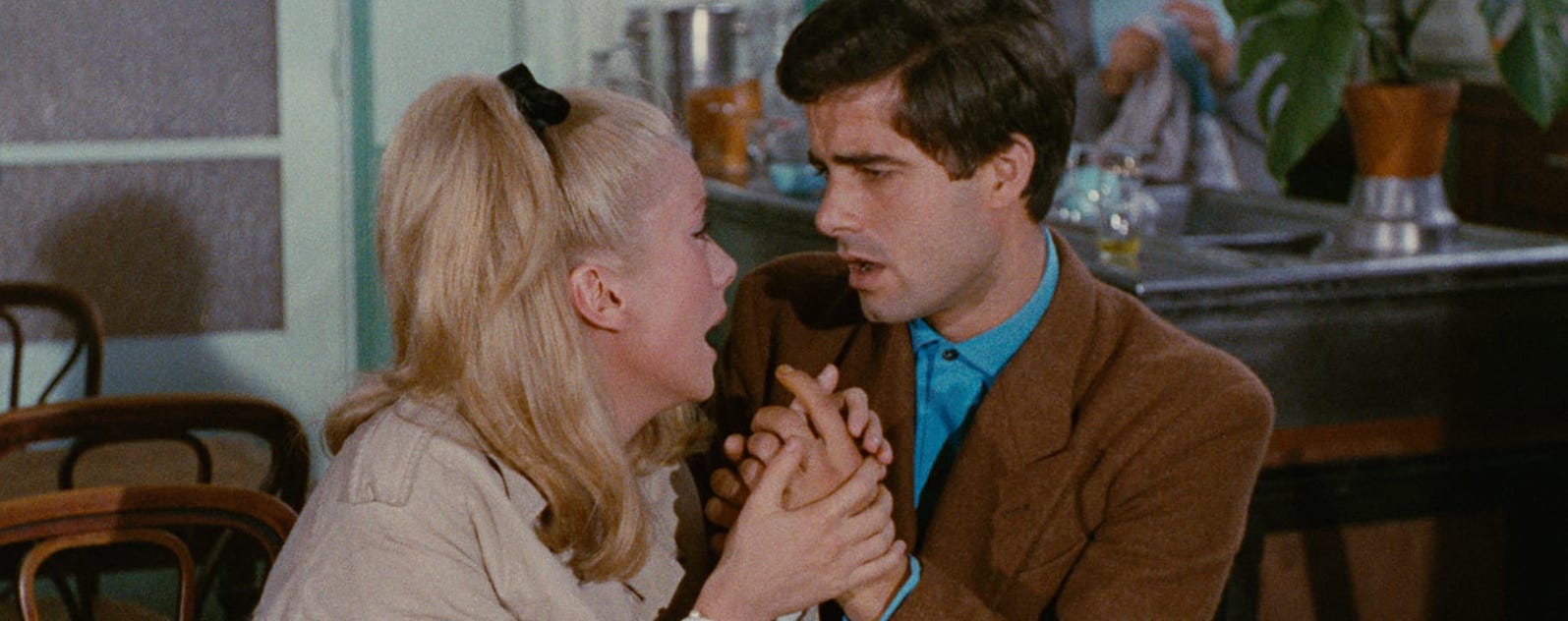
7 February – 21 February
While the film musical has been overwhelmingly associated with Hollywood’s golden age, French cinema harbours an equally rich tradition in the genre. Not only were French musicals as popular with their local audience as the genre was in the United States, but they were also an important artistic influence upon many of Hollywood’s most iconic practitioners, including Vincente Minnelli, Stanley Donen and Gene Kelly. Following an innovative period led by René Clair during the advent of sound in the late 1920s and early 1930s, the French film musical flourished into a tremendously varied genre. This season encapsulates this diversity, featuring “realist” musicals such as Jean Renoir’s French Cancan (1955), proletarian musicals like Clair’s À nous la liberté (1931) and modernist musicals that critic Adrian Martin has called “the most striking contribution [France] has made to the international evolution of the genre”. The musical was interrogated and re-worked by French filmmakers in the 1960s and 1970s, with the format attracting many of the nouvelle vague’s key directors and actors: from Jean-Luc Godard’s deconstruction of the genre, Une femme est une femme (1961), and the brilliantly self-reflexive collaboration of Anna Karina and Serge Gainsbourg for French TV, Anna (1967), to the works of Jacques Demy, who directed the dazzling The Umbrellas of Cherbourg (1964) and five other musicals from the mid 1960s to the late 1980s, and Agnès Varda, who turned the musical to radically feminist ends in the exuberant One Sings, the Other Doesn’t (1977).

7:00pm UNE FEMME EST UNE FEMME
Jean-Luc Godard (1961) 84 mins – PG
A playful, sometimes insolent homage to French and American musical comedies, Godard’s third feature is, according to the director, a “neo-realist musical”, as an exotic dancer (Anna Karina) vacillates between her lover (Jean-Claude Brialy) and his best friend (Jean-Paul Belmondo). Andrew Sarris looks past the Tashlin-pretending-it’s-Brecht surface, noting that the soul of the film is best understood as “a documentary not merely of Karina but of the sheer otherness of all women”. Featuring a knowing and evocative score by Michel Legrand and Raoul Coutard’s iconic colour cinematography.
CTEQ ANNOTATION
Une Femme est Une Femme
by Martyn Bamber
8:45pm ANNA
Pierre Koralnik (1967) 87 mins – Unclassified 15+
Flanked by an all-star cast including Jean-Claude Brialy, Marianne Faithfull and Serge Gainsbourg (who also wrote the soundtrack), Anna Karina plays the role of Anna, whose chance appearance in a photograph leads to an advertising executive’s obsession with tracking her down. Brilliantly shot by Willy Kurant (Masculin féminin) on the streets of Paris, this exquisitely playful musical was the first colour film made for French TV, combining elements of nouvelle vague style with aspects of British and US pop culture. As a showcase for Karina’s lesser-known singing talents, it produced her most enduring hit, “Sous le soleil exactement”.
CTEQ ANNOTATION
Anna
by Darragh O’Donoghue

7:00pm THE UMBRELLAS OF CHERBOURG
Jacques Demy (1964) 91 mins – PG
A perfect combination of setting (the chilly seaside town of Cherbourg), costume and hyper-real décor (designed by Bernard Evein), Demy’s perennial, bittersweet, all-singing love story tells of a young shop assistant (Catherine Deneuve) who, after her boyfriend is drafted to fight in the Algerian War and she discovers she is pregnant, marries another man (Marc Michel). Jean Rabier’s sumptuous cinematography and Michel Legrand’s justly famous score intensify the characters’ emotional states, helping create the ultimate European tribute to the Hollywood musical. Winner of the Palme d’Or at the 1964 Cannes Film Festival.
CTEQ ANNOTATION
Stingin’ in the Rain: The Umbrellas of Cherbourg
by Peter H. Kemp
8:45pm ONE SINGS THE OTHER DOESN’T
Agnès Varda (1977) 120 mins – Unclassified 15+
Varda’s feminist musical is an effervescent tale of friendship and sisterhood. When 17-year-old Pauline – a.k.a. Pomme (Valérie Mairesse) – helps 22-year-old Suzanne (Thérèse Liotard) acquire money for an illegal abortion, it marks the beginning of a deep and long-lasting bond that spans major milestones in both women’s lives. Featuring musical numbers with lyrics written by Varda herself and infused with a second-wave feminist consciousness, it paints a richly nuanced and multidimensional picture of the struggle for women’s bodily autonomy that remains pertinent today.
CTEQ ANNOTATION
One Sings, the Other Doesn’t
by Faith Everard

7:00pm FRENCH CANCAN
Jean Renoir (1955) 102 mins – PG
Renoir’s last truly great film is a jubilant celebration of the birth of the Moulin Rouge as seen through the exploits of its impresario founder, the fictional Henri Danglard (Jean Gabin). Renoir brilliantly blends expressive stylisation with realism, and robust showmanship with poetic expressiveness in this exuberant, colourful remembrance of la belle époque that Andrew Sarris called “the most joyous hymn to the glory of art in the history of cinema”. A beautiful evocation of and dedication to Renoir’s father’s era with appearances by María Félix, Michel Piccoli, Patachou and Edith Piaf.
35mm print courtesy of the National Film and Sound Archive, Australia.
CTEQ ANNOTATION
French CanCan
by Rick Thompson
8:55pm À NOUS LA LIBERTÉ
René Clair (1931) 83 mins – Unclassified 15+
Clair’s sublime, ground-breaking musical-comedy satire on the industrial work ethic, the dehumanising effect of mass production techniques and the alienation of the modern workplace features a brilliantly inventive use of music (by Georges Auric), rhythmic dialogue and highly choreographed movement, décor, character expression and sound effects. Highlighted by Georges Périnal’s sophisticated, fluid cinematography, this was the key inspiration for Chaplin’s Modern Times and a striking French counterpart to Lubitsch and Mamoulian’s work at Paramount in the 1930s.
CTEQ ANNOTATION
À Nous la Liberté
by John Flaus